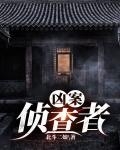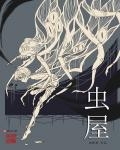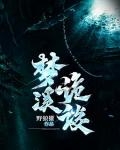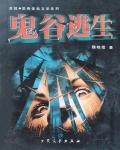Chapter two 2
Mu Linfeng's great-grandfather led a group of devils into the mountains to dig up the Hengwang Mausoleum. Shockingly, his great-grandfather and those devils never came out of the mountains again, and disappeared without a trace. No one knew where his great-grandfather took more than a dozen Japanese soldiers, but people knew that Mu Linfeng's great-grandfather must have died with the Japanese devils in order to protect the Hengwang Mausoleum. This story is still circulating in the local area.
Mu Linfeng's grandfather was less than ten years old when he was sent away. He returned to the village after the Japanese surrendered. At that time, the family was in a mess. A year later, when his grandfather was sixteen years old, he married his grandmother. At that time, the family was so poor that they could not even afford to eat. Mu Linfeng's grandmother gave birth to six or seven children in total, most of whom died at a young age. In the end, only his father was left alive.
Misfortunes often bring blessings. The Mu family was lucky because of his great-grandfather's opium smoking, otherwise Mu Linfeng's father's generation would have been in trouble. After liberation, the village was divided into landlords, rich peasants, and poor and lower-middle peasants. They were divided according to whether the family had land and family conditions. By the time of his grandfather, his family was already penniless, so they were classified as poor and lower-middle peasants. In that era when the poorer the more glorious, the title of poor and lower-middle peasants was incredible.
Mu Linfeng's grandfather had an uncle who was classified as a rich peasant because his family had a few acres of land. In the more than ten years that were known to everyone, he was criticized and struggled against every other day and suffered a lot. So Mu Linfeng's mother often joked: smoking opium has its benefits, at least for our old Mu family, it has prevented our descendants from suffering...
Bad luck seemed to have always accompanied the Mu family since Mu Linfeng's great-grandfather. The three generations from his father onwards were all missing, and Mu Linfeng's grandfather and father also disappeared one after another. Therefore, there were no more "lumps" when it came to Mu Linfeng, and no one knew where the tomb-viewing skills that had been passed down for twenty generations of ancestors had gone...
Mu Linfeng quietly looked at the family tree placed on the desk, and suddenly a thought flashed through his mind. His ancestors were specialized in making "lumps" and they understood the Chinese values of raising children better than others. Therefore, the older generation would never let the family skills be lost easily.
Providing care in old age, seeing off to the end of one's life, adding soil to graves, and worshipping ancestors, these are the values of having children in ancient China. Having no descendants would mean that all funeral rites would be in vain, the ancestors would become evil spirits, the graves would become a tomb with no descendants, and there would be tragic scenes of foxes and rabbits drilling into the holes, broken tombstones falling to the ground, and dead trees withered branches. This is what our ancestors least wanted to see.
Since ancient times, Chinese people have attached great importance to investing in their descendants. The Book of Rites states: "A gentleman embraces his grandchildren instead of his sons." This idea is directly related to the sacrifices in funerals. Because in the "Yu Sacrifice" after the funeral, the grandchildren can serve as the "corpse" of the deceased.
Yu Sacrifice is a sacrificial ritual handed down from the pre-Qin period. It is an important sacrificial activity after the burial of the deceased. Yu Sacrifice is still preserved in the rural areas of Shandong, and it is an important sacrificial link that must be carried out after the funeral.
During the Yu Sacrifice, the "corpse" must be welcomed into the house, that is, the buried "person" must be invited back home. The "corpse" is a living person who represents the deceased and is usually the grandson of the deceased. Because ghosts and gods cannot hear or see, living people are used as substitutes. "The corpse is eaten when it is full, and when it is drunk, it is drunk as if the gods are full." If the deceased has no direct grandson, a grandson will be temporarily adopted for the deceased, usually a child of a collateral relative.
Mu Linfeng thought that his ancestors were "lumps" and were familiar with all the sacrificial rituals, so it was impossible for them not to explain it to their descendants. According to the ancient concept of "a gentleman embraces his grandchildren instead of his sons", even if his great-grandfather did not pass on his tomb-viewing skills and "Emperor's Burial Mountain Map" to his grandfather, he would definitely find a way to pass it on to his father or himself.
Thinking of this, Mu Linfeng suddenly stood up and walked back and forth in the study. He had a habit of walking silently when thinking. When his body moved, he felt that his brain became active as well.
If the ancestors wanted to pass on the tomb-viewing skills to future generations, where would they hide the things? Mu Linfeng thought as he walked.
Suddenly, an inspiration flashed through Mu Linfeng’s mind: ancestral tomb!
Mu Linfeng suddenly became excited. His ancestors were all "geeks" who had the unique skill of looking at tombs. The place they were most familiar with was of course the tombs, so if there were any treasures, they would definitely be hidden in the tombs.
Mu Linfeng first thought of his great-grandfather’s grave, because the location of his great-grandfather’s grave was strange. It was not with other graves in the family, but was alone in a locust tree forest not far from the old house.
My great-grandfather was an expert at choosing tombs. He personally selected his tomb when he was in his twenties and built it when he was in his thirties. After my great-grandfather disappeared with the Japanese devils, the built tomb became his home. If my great-grandfather wanted to leave something important behind, he would definitely hide it in his tomb.
Thinking of this, Mu Linfeng decided to go back to his hometown after dawn. Perhaps he could find the "Emperor's Burial Mountain Map" in his great-grandfather's tomb.
Mu Linfeng's hometown, Mujiaying, is located in the mountains more than 20 kilometers southwest of the county seat. It is surrounded by mountains on all sides. The surrounding mountains are covered with various trees, and there is water in the river ditches under the mountains all year round. Although it is not a beautiful place, it also has mountains and water, and is full of spiritual energy.
In the early years, there was only one mountain road connecting here to the outside world. The mountain was not high, but it was steep and dangerous. No wonder General Mu Ying chose to set up camp here.
There have been many peasant uprisings in Qingzhou area since ancient times. Sun Gupu, who called himself "Yellow Turban", and Tang Sai'er, a famous female uprising leader, all took a fancy to the dangerous terrain of the area.
Nowadays, there is a provincial road passing through the foot of the mountain below the village. The villages that used to be on the hillside have gradually moved down, and most families have built new houses on both sides of the road. The villages on the mountain are all old and dilapidated, and only a few elderly people are unwilling to come down and still live there.
Although it is not far from the county town, Mu Linfeng can only come back a few times a year. He has no direct relatives in the village, only uncles and brothers outside the "five degrees of mourning", so he only comes back during festivals and when visiting the graves to worship his ancestors.
Because his mother's grave is also on the mountain behind the village, he has to come back to sweep the grave several times a year. At this time, Mu Linfeng suddenly realized that the invisible line that connects him to this place is the worship of ancestors. On Qingming Festival, the sixth day of the sixth lunar month, the first day of the tenth lunar month, and New Year's Eve, these festivals require visiting the graves of the deceased elders. Among them, Qingming Festival and New Year's Eve are the two most important festivals of the year.
In the 20th year of Kaiyuan reign of Emperor Xuanzong of Tang Dynasty, an official decree was issued: "Five rituals should be compiled for visiting tombs on Cold Food Day, and this will become the permanent ritual." This was the first time that the country designated the time for tomb sweeping as "Cold Food Festival", also known as Qingming Festival, in the form of rituals.
Adding soil to the graves of ancestors is the most important part of the Qingming Festival sacrifice. This is why people call tomb sweeping "going to the grave". In order to prevent the graves from being damaged by rain and to keep them at a certain height, the grave mounds are repaired and new soil is added, which is called "going to the grave to worship the soil".
However, the most lively tomb-sweeping and sacrificial activities in local rural areas are still on the afternoon of New Year's Eve. This is a tomb-sweeping and sacrificial activity that only men can participate in. It is also the most grand sacrifice of the year and the most important part of all New Year activities.
In Mu Linfeng’s childhood memory, the New Year’s Eve sacrifice was the thing he looked forward to most, because all the people in the family gathered together. This was the opportunity for the men in the family to get together in a year, and a lot of firecrackers would be set off.
First of all, each family visits the graves of their ancestors separately. Generally, relatives within the five degrees of mourning visit together, with more than ten or even dozens of people placing offerings in front of the ancestor's grave, and then starting to set off firecrackers. The family that sets off more and louder firecrackers indicates that the family will have a large population, so every household competes in setting off firecrackers. The firecrackers in the cemetery will be set off for an hour or two, and it is very lively.
After the tomb sweeping of each family, the most grand activity of the whole New Year begins. In the local dialect, it is called "welcoming the great grandfather and the great mother". This is an important activity for worshipping ancestors. The big families of the same surname act together, usually with hundreds of people participating, to go to the cemetery outside the village to bring the tablets of their ancestors back to the village ancestral hall, to celebrate the New Year with everyone, and then send them back after the 16th day of the first lunar month.
The scene of this sacrificial ceremony was very grand and lively. Almost all the men and women in the village came out. Under the leadership of the elders of the clan, hundreds of people kowtowed and worshiped together. The scene was very grand and it should be said that it was the largest collective activity in every village.
The scenes of his childhood emerged in Mu Linfeng's mind, and he climbed up the winding mountain path to the edge of the village unconsciously. Because he came from the small path, he came directly to the middle of the village. There is a main road at the head of the village, but Mu Linfeng rarely walks there. Every time he comes back, he comes up along the small road, because walking on the small road will remind him of many past events.
Seeing the familiar low walls and small houses in the village built with stones of different sizes, Mu Linfeng felt an indescribable sense of familiarity in his heart. Every time he came back, he would walk around the village and take a look. Every blade of grass, every brick and tile, and even the unique smell of the village intoxicated him.
Walking on the small path in the village paved with bluestone slabs, he felt a sense of comfort and tranquility in his heart. The things in the outside world would be temporarily forgotten, and his mind would be instantly relaxed. Mu Linfeng would enjoy this feeling every time he came back.
From time to time, he met uncles and grandfathers from the village, and they all greeted Mu Linfeng warmly. People in the mountains are always so simple. Now that everyone is well-off and no longer has to worry about their livelihoods, the old people sit in groups of three or five, drinking tea and chatting under the old persimmon tree, a picture of peace and comfort.
The Mu family's old house is at the very end of the village, with the highest position and surrounded by woods on three sides. In the words of some people, it is the best place in the village in terms of feng shui. However, Mu Linfeng does not agree with the "feng shui theory". He thinks it is mostly a scam.
This old house not only has the best location in the village, but also has the largest area, covering more than one acre of land and three courtyards. It can be considered a wealthy family within a hundred miles. However, only broken walls and ruins are left now, and the roof has collapsed. Only the wide five-step stone steps at the gate still show the former glory of this old house.
The two stone lions on both sides of the entrance are still there. They were pushed down during the "Four Olds" campaign and were later erected again. Half of the head of one of the lions was smashed off.
Seeing the stone lions, Mu Linfeng was reminded of his childhood, when he often rode on them to play. Sometimes he would fight with his friends for the chance to ride on a lion. In most cases, he was always the winner, not only because he was physically strong, but also because he had the advantage of time and place.
Without even entering the yard, one could imagine that it must be overgrown with weeds and difficult to walk in. Mu Linfeng took the path outside the wall and went around to the forest behind. His great-grandfather's grave was in the forest behind the old house, less than a hundred meters away.
The other ancestral graves of the Mu family are all on the hillside one mile away from the village. Most of the graves in the village are also there. Mu Linfeng has never understood why his great-grandfather chose this place for his own grave. It seems so deserted and lonely. When he came back this time, Mu Linfeng suddenly realized that his great-grandfather chose this place for his own grave. Did he have other intentions? Mu Linfeng had a hunch that he would definitely find something from here.
The trees in this forest are rare locust trees on the mountain. The whole forest is full of old locust trees, and many of the big trees are too big for one person to hug. Because the locust trees grow crooked and cannot be used as timber, and because the great-grandfather's tomb is here, this forest has been preserved, otherwise it would have been cut down in the past few years. This also shows the status of Mu Linfeng's great-grandfather in the hearts of the villagers. He has always been regarded as a hero of Mujiaying.
The flocks of gray magpies on the treetops kept calling, making the originally quiet woods feel a little eerie. When Mu Linfeng was a child, he never dared to come here alone because there was his great-grandfather's grave here. Especially in the evening, he didn't even dare to get close to the edge of the woods. He always felt that there were ghosts floating around in the woods, and the shrill cries of owls made him even more frightened.
After walking along the path in the forest for dozens of meters, I saw a tall tomb at a distance. This was the tomb of Mu Linfeng's great-grandfather.
Mu Linfeng hasn't been here for more than half a year. This tomb is the largest and most imposing one in the village. It is built on a square base with a side length of seven or eight meters. The base is entirely made of bluestone strips. The tomb is more than three meters high, and the surrounding area is also built with rectangular stones. There is a tombstone more than two meters high in front of the tomb.
Mu Linfeng knew that his great-grandfather's tomb was built before he started smoking opium, otherwise he would not have had the money to build such a grand tomb after he started smoking opium.
Chinese people often build tombs, coffins, shrouds, etc. while they are still alive. Even in modern society, some people still do this. They do this not because they are in a hurry to die, but to do everything they should do before they die. In fact, it is not only ordinary people, but also the emperors in ancient times who would immediately start building their own mausoleums as soon as they ascended the throne. From the perspective of funeral culture, lavish burials and long-term sacrifices are the biggest characteristics of Chinese funerals and sacrifices.
After entering the tomb, Mu Linfeng suddenly discovered that the area around the tomb seemed to have been cleaned by someone. The stone base was very clean, without any dead branches or leaves.
He felt a little strange. It was not a tomb-sweeping festival, so who would come to clean his great-grandfather's grave? Moreover, there were no offerings on the stone altar in front of the tombstone, nor any traces of burning paper money. Obviously, no one should come to sweep the grave and pay tribute.
Mu Linfeng walked around his great-grandfather's tall tomb. Apart from being very clean, there was no other change. He wondered if the wind had blown away all the leaves here. But why hadn't he noticed this before?
Just when Mu Linfeng was puzzled, he suddenly heard a squeaking sound coming from the top of the grave. He hurriedly looked up and saw a weasel squatting on his great-grandfather's grave.
This weasel was much bigger than usual, with a round body, fat and strong, and shiny yellow fur. Its two front paws were raised, and its black mouth and two round eyes were staring at Mu Linfeng, and it didn't seem to be afraid at all. From its fur color and black mouth, it could be seen that this was an old weasel.
The weasel is a fearsome spiritual animal in the local area. People are accustomed to calling it "leather fairy" because the weasel can possess a human body. Mu Linfeng once witnessed someone being "possessed" by a leather fairy.
"Shangshen" is a local colloquialism, which means being possessed by a certain spirit. Not only " Pixian" can possess a person, but other ghosts and gods can also possess a person. There is no convincing explanation for this phenomenon, but it does happen frequently in local rural areas. Most of the people who are possessed are women, and they are honest and simple peasant women. If you observe carefully, you can see that they are definitely not pretending. After being possessed, their language and behavior completely change into another person, dancing, talking and singing.
When Mu Linfeng was in elementary school, he encountered such an incident. Not far from the Mu family's old house, there lived a second aunt of the family. One day, she was suddenly possessed by a weasel. It was just after school, and Mu Linfeng was about to go home for dinner. Suddenly, he saw a few people running to the second aunt's house. He was curious and ran into the second aunt's house.
Second Aunt was only in her thirties at the time. She was usually very clean, but she was rolling around in the yard with disheveled hair. She seemed to have suddenly become a different person. White foam was coming out of her mouth, and she kept squeaking. She looked very scary. Two or three people couldn't hold her down. The young Mu Linfeng was so scared that he hid behind a tree and dared not move, just watching secretly.
After struggling for a while, Second Aunt suddenly stopped moving, staring straight ahead with her eyes, and talking in a shrill voice.
Because of fear, Mu Linfeng could not hear what she said. An elderly lady seemed to understand and said to the two men who helped: "Hu Zi's mother is possessed by a fairy. She said she was trapped in the locust tree forest behind the village. Go and have a look. If there is a fairy, release it immediately. Remember not to hurt it..."
The two grown men turned around and ran out of the yard. After a while, Second Aunt suddenly woke up, stood up from the ground as if nothing had happened, and looked at the people in the yard curiously, not knowing what had happened to her.
Soon, the two men came back and said that they had indeed trapped a weasel in the locust tree forest, and it was an old weasel with a black mouth. Later, they found out that the trap in the forest was set by Second Aunt's man, no wonder Pi Xian came to her.
The locust tree forest they were talking about was the forest where the great-grandfather's grave was. Since this incident, the forest behind the old house has become more mysterious, and Mu Linfeng dared not walk into the forest alone. Now seeing that the weasel on the grave also had a black mouth, Mu Linfeng suddenly remembered that the weasel trapped by the second aunt's husband also had a black mouth, and thought, could it be the same one? If it is really the same one, then this weasel must be a "leather fairy" that has become a spirit.
I've heard from people in the village that the Pixian only possesses women and never men, so Mu Linfeng didn't feel scared. He raised his hand and waved at the weasel, and at the same time shouted loudly, trying to scare the weasel away.
Mu Linfeng felt that it was somewhat disrespectful for the weasel to stand on his great-grandfather's grave, but he didn't expect that the little guy would ignore his threats and look calm, still looking at him with a pair of round eyes, and making squeaking sounds from his mouth from time to time, but the sounds did not sound like anger.
Mu Linfeng looked around, trying to find a small stone or something, but there was nothing on the clean ground. At this moment, Mu Linfeng suddenly remembered the warning from the old man in the village: if you encounter a Pixian, don't hurt it, otherwise it will use the same method to fight back against your family.
A few years ago, a very strange thing happened in a neighboring village. A young man who was in charge of watching the forest saw a weasel. He raised his hunting rifle and shot at the weasel. Unexpectedly, the shot hit his father's leg. His father was working in the vegetable field a few miles away. This young man was a classmate of Mu Linfeng in the same grade but different class in middle school. He knew this person, so he believed this story without a doubt.
Seeing this little guy squeak at him non-stop, Mu Linfeng suddenly realized that it might be saying something to him, so he looked at this magical little thing called the Pixian curiously and asked softly: "Brother Huang, what do you want to tell me?"
The strange thing was that when Mu Linfeng finished speaking, the weasel suddenly stopped barking and just looked at him quietly with a strange look...
At this moment, Mu Linfeng suddenly became dazed as if he was under a spell. Without realizing it, he used his hands and feet to slowly climb to the top of the grave in front of him. However, after he climbed to the top of the grave, the weasel suddenly disappeared.
Mu Linfeng stood on the top of the tomb in a daze, looking around for the weasel, but he found nothing. Just as he was wondering, he suddenly felt his feet go soft, as if he was stepping into empty space, and the place where he was standing suddenly sank. Before he could react, his whole body fell into the dark cave...






